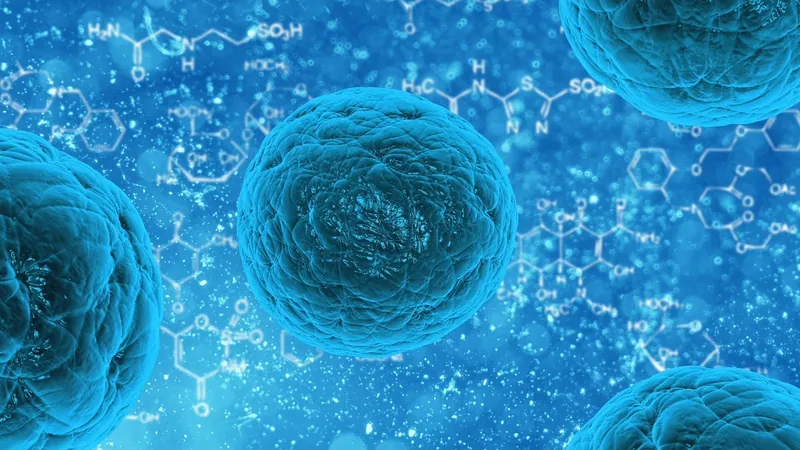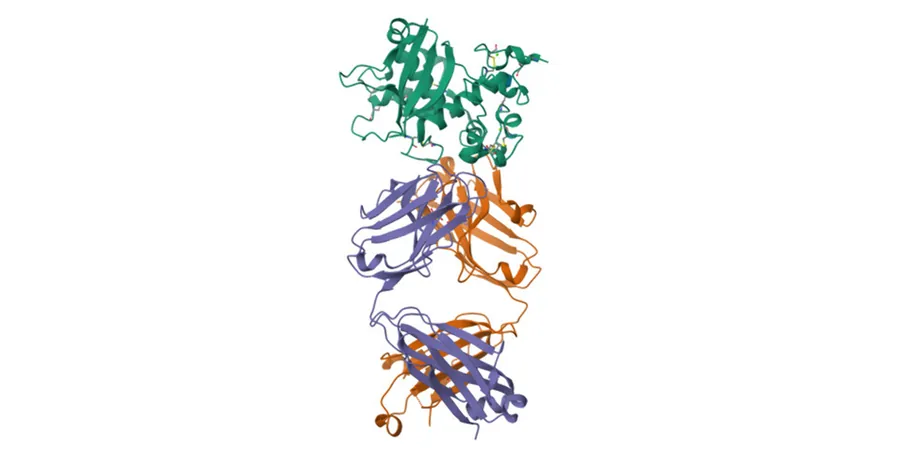
The Secrets of Cellular Recycling: Scientists Uncover How Cells Decide What to Eat
2025-09-04
Author: Liam
Unlocking the Mystery of Autophagy
In the fascinating world of cells, a crucial process known as autophagy—derived from the Greek term for 'self-eating'—plays a pivotal role in maintaining cellular health. This natural recycling system breaks down worn-out components and protects cells from infection and stress, acting like a dedicated cleaning crew for your cells.
The Dynamic Duo of Autophagy
However, autophagy is not a one-size-fits-all mechanism. Scientists differentiate between 'non-selective autophagy', which indiscriminately cleans up cellular debris, and 'selective autophagy', which carefully targets internal culprits like damaged organelles and misfolded proteins. Diverse stressors, from hunger to toxic chemicals, can activate this crucial pathway.
While autophagy is vital for cellular survival, errors in its regulation can lead to serious health issues, including cancer and neurodegenerative diseases.
A Groundbreaking Study from Ottawa
A revolutionary study published in the *Journal of Cell Biology* by researchers from the University of Ottawa is shedding light on the intricate pathways that govern autophagy. With a newly optimized workflow, this team has identified key signaling mechanisms that help cells adapt autophagy responses in the face of various stressors.
By unveiling these stress-specific regulators, the research team is paving the way for innovative therapeutic strategies that could transform our understanding of autophagy—promising to bring laboratory findings closer to medical applications.
Solving the Cellular Puzzle of Disease
Recent insights into autophagy dysfunction reveal that diseases often arise from mismanagement of cellular components. For example, an accumulation of harmful protein aggregates is linked to neurodegenerative disorders, while faulty mitochondria are a common sight in cancer.
Understanding the precise regulation of autophagy is essential to devise future treatments aimed at rectifying these defects.”
Harnessing Technology for Innovation
Drs. Maxime Rousseaux and Ryan Russell, the brains behind this study, utilized cutting-edge CRISPR technology to conduct a kinome-wide screen that identifies the signaling pathways essential for different forms of autophagy. With kinases being popular targets in drug development, their findings are not only groundbreaking but highly relevant for future therapeutic interventions.
Ph.D. student Truc Losier engineered a novel workflow that allowed for simultaneous genetic screening, greatly enhancing the validation process for previously unnoticed targets.
A New Era of Research Opportunities
Their ambitious approach uncovered a variety of unique regulatory mechanisms in autophagy, revealing complexities that could reshape current understanding within the field. The methods developed by this team are set to assist researchers across multiple disciplines seeking to study intricate cellular processes.
Future Directions and Exciting Possibilities
With their innovative methodologies rooted in the Genome editing and molecular biology (GEM) Facility at uOttawa, the researchers are eager to explore how the signaling pathways they discovered might enhance innate immunity and aid in the fight against infections.
Dr. Russell expresses optimism: 'We aim to pharmacologically control pathogen infection using some of the kinases we've identified.' The journey into the cellular recycling realm is just beginning, and these pioneering efforts hold untold promise for medical advancements.









 Brasil (PT)
Brasil (PT)
 Canada (EN)
Canada (EN)
 Chile (ES)
Chile (ES)
 Česko (CS)
Česko (CS)
 대한민국 (KO)
대한민국 (KO)
 España (ES)
España (ES)
 France (FR)
France (FR)
 Hong Kong (EN)
Hong Kong (EN)
 Italia (IT)
Italia (IT)
 日本 (JA)
日本 (JA)
 Magyarország (HU)
Magyarország (HU)
 Norge (NO)
Norge (NO)
 Polska (PL)
Polska (PL)
 Schweiz (DE)
Schweiz (DE)
 Singapore (EN)
Singapore (EN)
 Sverige (SV)
Sverige (SV)
 Suomi (FI)
Suomi (FI)
 Türkiye (TR)
Türkiye (TR)
 الإمارات العربية المتحدة (AR)
الإمارات العربية المتحدة (AR)